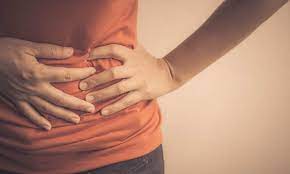
Nội dung bài viết / Table of Contents
This post is also available in: Tiếng Việt (Vietnamese)

Enteritis is an inflammation that occurs in your small intestine. Enteritis is an umbrella term that include other intestine inflammation conditions, whether by bacteria or viruses.
Inflammation conditions, such as Crohn’s disease or ulcerative colitis, fall under enteritis. Enteritis is a part of gastroenteritis (inflammation in the stomach and small intestine).
Enteritis is common. It can affect patients at any age. It can be managed by reducing your risk factors. Please discuss with your doctor for further information.
The common signs and symptoms of enteritis are:
There may be some signs or symptoms not listed above. If you have any concerns about a symptom, please consult your doctor.
You should contact your doctor if you have any of the following:
There are many causes of enteritis. If you have infectious enteritis, the first cause may be the food poisoning. When you eat and ingest food or water that is contaminated with bacteria, these bacteria can come into your body and this results in enteritis.
Many things can lead to contaminated food, like improper food handling, poor hygiene during poultry and meat processing. The foods most often associated with food poisoning are raw poultry and meat, unpasteurized milk, fresh produce.
Another cause of getting infectious enteritis is your contacting with infected people or infected animals but this is less common.
While experiencing radiation therapy can lead you to have radiation enteritis. Not only cancer cells but also healthy cells are killed during radiation therapy, including mouth, stomach, and bowel cells.
The result is that radiation enteritis develops when your normal, healthy intestinal cells are damaged by radiation and become inflamed.
Moreover, enteritis can also be caused by some medications, including ibuprofen and naproxen sodium illegal drugs, such as cocaine; autoimmune diseases, such as Crohn’s disease.
There are many risk factors for enteritis, such as:
The information provided is not a substitute for any medical advice. ALWAYS consult with your doctor for more information.
Your doctor may ask you to take a physical examination, blood tests or stool cultures to diagnose your enteritis and determine the cause of your condition as well.
If your doctor aims to identify what type of infection you get, a stool culture can be ordered, although taking this test does not always bring the result.
In such case, a colonoscopy and/or upper endoscopy to look at the small intestine is needed, and maybe take tissue samples is necessary for diagnosing. You can also be required to experience X-rays such as CT scan and MRI so that your doctor can diagnose your enteritis better.
In case your enteritis is mild, medical treatment is not required because it can get away on its own in some days. If you have symptom of diarrhea, what you need to do is to replenish your fluids afterwards.
When you can’t get enough fluids, your doctor may recommend rehydration with electrolyte solutions, which are the combination of primarily water and the essential electrolytes including sodium (salt) and potassium.
If you have severe diarrhea, you have to take intravenous fluids, medications, or even hospitalization. In children, the case of having diarrhea and not being able to keep fluids down needs medical care and fluids through a vein (intravenous fluids).
Changes to your radiation therapy may be done if you are diagnosed with radiation enteritis. You may even need to stop radiation entirely, or have a surgery to remove the part of the bowel that has been damaged.
Although antidiarrheal medicine is sometimes used, it can bring you side effect of slowing the germ from leaving the digestive tract. If your diarrhea is developed after taking diuretics, you should stop taking the diuretic along with discussing with your doctor.
The following lifestyles and home remedies might help you cope with enteritis:
If you have any questions, please consult with your doctor to better understand the best solution for you.
Sources: